In the realm of healthcare, medical imaging plays a crucial role in diagnosing and treating a wide range of medical conditions. Magnetic Resonance Imaging (MRI) stands out as a non-invasive and versatile imaging modality, providing detailed insights into the human body’s intricate structures.
However, the path to obtaining an MRI scan can be entangled with insurance complexities. This comprehensive guide unravels the intricacies of insurance approval for MRI scans, empowering individuals to navigate the process effectively.
Delving into the nuances of insurance coverage, we’ll explore the typical MRI scan coverage under various insurance plans, emphasizing the significance of understanding policy details. We’ll delve into the concept of prior authorization, deciphering the reasons behind insurance companies’ requirements and offering practical tips for securing approval.
Furthermore, we’ll shed light on medical necessity criteria, arming readers with knowledge of common conditions that meet these criteria and strategies for effectively documenting medical necessity.
Insurance Coverage Basics
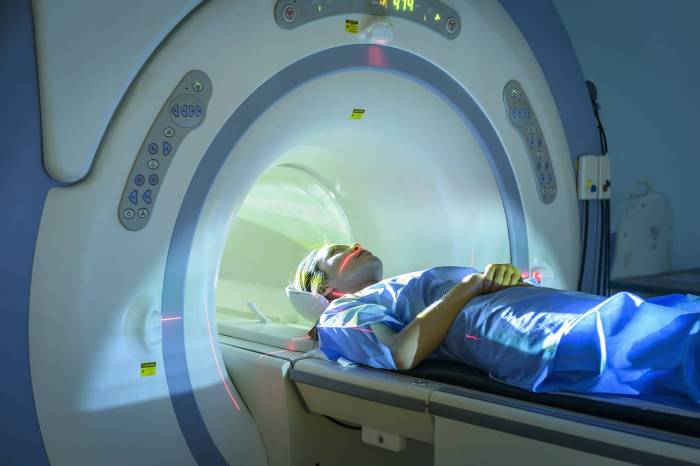
Understanding insurance coverage for MRI scans is crucial in ensuring access to necessary medical care. Various insurance plans offer different levels of coverage for MRI procedures, making it essential to be familiar with the details of your policy.
Insurance policies typically cover MRI scans when deemed medically necessary by a healthcare provider. This determination is based on specific criteria, such as the patient’s symptoms, medical history, and the suspected underlying condition.
Covered MRI Procedures
Common MRI procedures covered by insurance include:
- Head MRI: This scan evaluates the brain, blood vessels, and surrounding structures for abnormalities such as tumors, strokes, and infections.
- Spine MRI: This scan assesses the spinal cord, vertebrae, and surrounding tissues for conditions like herniated discs, spinal stenosis, and nerve impingement.
- Chest MRI: This scan examines the heart, lungs, and surrounding structures for abnormalities such as masses, infections, and congenital defects.
- Abdominal MRI: This scan evaluates the organs and structures in the abdomen, including the liver, pancreas, kidneys, and intestines, for conditions like tumors, cysts, and inflammation.
- Pelvic MRI: This scan assesses the reproductive organs, bladder, and surrounding tissues for conditions like fibroids, endometriosis, and pelvic inflammatory disease.
Prior Authorization Requirements
Many insurance companies require prior authorization before approving an MRI scan. This means that you must get approval from your insurance company before you can have the MRI scan. The purpose of prior authorization is to ensure that the MRI scan is medically necessary and that the cost of the scan is reasonable.
Reasons for Prior Authorization
There are a few reasons why insurance companies may require prior authorization for MRI scans.
- To ensure that the MRI scan is medically necessary.
- To prevent unnecessary MRI scans.
- To control the cost of MRI scans.
Tips for Obtaining Prior Authorization
If your insurance company requires prior authorization for an MRI scan, there are a few things you can do to make the process easier.
- Talk to your doctor. Your doctor can help you determine if an MRI scan is medically necessary and can provide the necessary documentation to support your request for prior authorization.
- Contact your insurance company. Your insurance company will have a specific process for requesting prior authorization. Be sure to follow the instructions carefully and provide all of the required information.
- Be persistent. It may take some time to get prior authorization approved. Don’t give up if your initial request is denied. You can appeal the decision and provide additional information to support your request.
Medical Necessity Criteria
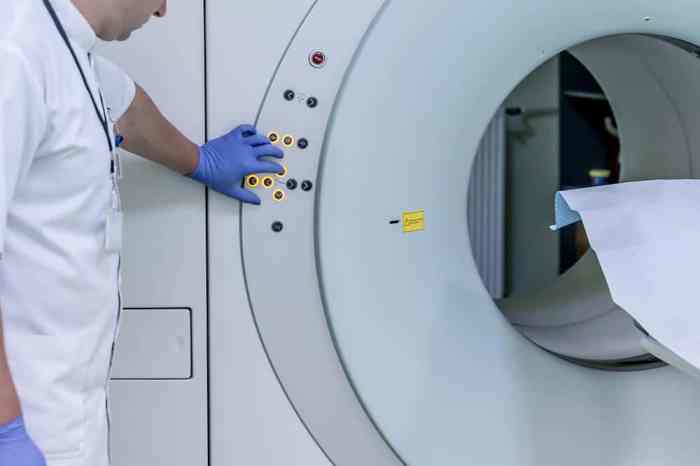
Medical necessity criteria are the standards that insurance companies use to assess whether an MRI scan is medically necessary for a patient. To meet these criteria, the MRI scan must be considered a reasonable and necessary diagnostic tool for a specific medical condition.
Factors such as the patient’s symptoms, the suspected diagnosis, and the potential benefits of the MRI scan are taken into account.
Common medical conditions that typically meet the medical necessity criteria for MRI scans include:
- Back pain
- Neck pain
- Headaches
- Joint pain
- Soft tissue injuries
- Tumors
- Infections
- Neurological disorders
To effectively document medical necessity and support an MRI request, it is essential to provide detailed information about the patient’s symptoms, the suspected diagnosis, and the potential benefits of the MRI scan. This information can be obtained from the patient’s medical history, physical examination findings, and diagnostic test results.
It is also important to provide a clear explanation of why the MRI scan is the most appropriate diagnostic tool for the patient’s condition.
Documentation and Supporting Information
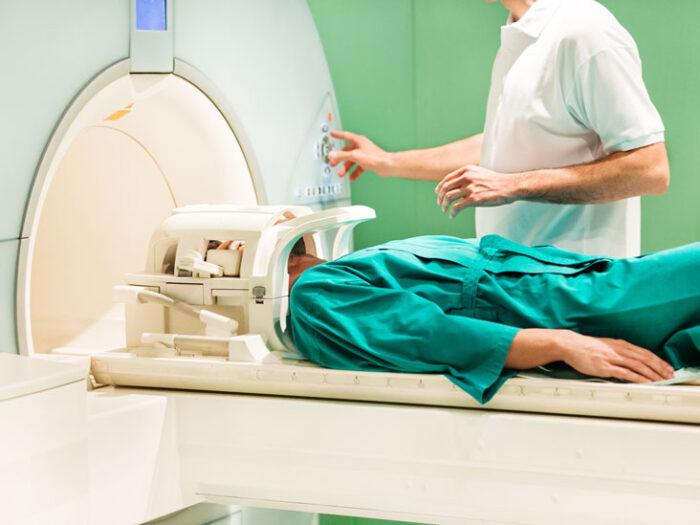
Intro ParagraphObtaining MRI approval from insurance requires careful preparation and documentation. Providing clear and concise medical records, organized in a compelling manner, increases the chances of successful approval. This section presents a checklist of essential documentation and tips for organizing and presenting medical information effectively.
Checklist of Essential Documentation
To ensure a smooth MRI approval process, gather the following essential documentation:
- Insurance Policy Information: A copy of the insurance policy, including details on coverage and benefits, is crucial.
- Patient Information: Include the patient’s name, address, date of birth, and insurance ID number.
- Medical Records: Compile relevant medical records, including past medical history, current symptoms, and diagnostic test results.
- Physician’s Referral: Obtain a referral from the physician ordering the MRI, stating the medical necessity and anticipated benefits.
- MRI Request Form: Complete the MRI request form provided by the insurance company or healthcare provider.
- Prior Authorization Request: If required by the insurance company, submit a prior authorization request form.
- Appeals and Grievances: Keep records of any appeals or grievances filed with the insurance company.
Importance of Clear and Concise Medical Records
Providing clear and concise medical records is essential for insurance approval. These records should:
- Be Comprehensive: Include all relevant medical information, including past medical history, current symptoms, diagnostic test results, and treatment plans.
- Be Accurate: Ensure the information is accurate and up-to-date, as any discrepancies can raise red flags.
- Be Well-Organized: Organize medical records chronologically, with the most recent information first.
- Be Easy to Understand: Use clear and concise language, avoiding medical jargon that may be unfamiliar to the insurance reviewer.
Tips for Organizing and Presenting Medical Information
To present medical information in a compelling manner:
- Use a Logical Structure: Organize the medical records in a logical and coherent manner, making it easy for the insurance reviewer to follow.
- Highlight Key Points: Emphasize critical information by using bold or underlined text, but avoid overusing these formatting options.
- Provide Context: Include a brief explanation of the medical condition, its symptoms, and the anticipated benefits of the MRI.
- Use Visual Aids: Incorporate relevant images, such as X-rays or MRI scans, to provide visual evidence supporting the request.
Communication with Insurance Providers
Effective communication with insurance companies is vital for MRI approval. Be clear, concise, and professional in your interactions. Provide all necessary information upfront to avoid delays or misunderstandings. Maintain a record of all communications, including dates, names of representatives, and details of conversations.
Proactive Follow-Up
Follow up on MRI approval requests regularly. Contact the insurance company to inquire about the status of your request and address any outstanding issues promptly. Timely follow-up demonstrates your commitment to securing approval and can expedite the process.
Resolving Insurance Claim Denials
If your insurance claim is denied, request a clear explanation of the denial. Understand the specific reasons for the denial and gather additional information or documentation to support your appeal. Respond to the denial within the specified timeframe to avoid missing deadlines.
Appealing Denied Requests
If your appeal is denied, consider filing an external review or an independent review. These processes involve an impartial third party reviewing your case and making a decision. Be prepared to provide additional information and documentation to support your appeal.
In-Network vs. Out-of-Network Providers

Navigating the intricacies of insurance coverage for MRI scans can be daunting. Understanding the distinctions between in-network and out-of-network providers is crucial for making informed decisions about your healthcare and minimizing financial surprises.
In-network providers have contractual agreements with your insurance company, resulting in negotiated rates for services. This typically means lower out-of-pocket costs for you, including copayments, coinsurance, and deductibles. Insurance companies maintain a network of healthcare providers, including radiologists, hospitals, and imaging centers, that have agreed to provide services at pre-determined rates.
Coverage Differences
- Copayments and Deductibles: In-network providers typically have lower copayments and deductibles, making the overall cost of your MRI scan more affordable.
- Coinsurance: For in-network providers, coinsurance rates are often lower, meaning you pay a smaller percentage of the total cost of the MRI scan.
- Pre-Authorization: Pre-authorization is often not required for in-network providers, simplifying the process of obtaining coverage approval.
Cost Implications of Out-of-Network Providers
- Higher Costs: Using out-of-network providers generally results in higher out-of-pocket expenses. You may be responsible for the entire cost of the MRI scan or a significant portion of it.
- Lack of Coverage: Out-of-network providers may not be covered by your insurance plan, leaving you fully responsible for the cost of the MRI scan.
Finding In-Network Providers
- Insurance Provider Website: Many insurance companies provide online tools to search for in-network providers in your area.
- Provider Directory: Contact your insurance company to request a printed or digital directory of in-network providers.
- Healthcare Provider Website: Some healthcare providers have websites where you can verify if they are in-network with your insurance plan.
- Ask Your Doctor: Your doctor may be able to recommend in-network providers that offer MRI services.
By understanding the differences between in-network and out-of-network providers and taking steps to find in-network providers, you can minimize the cost of your MRI scan and ensure that your insurance coverage is maximized.
Cost-Sharing and Financial Considerations
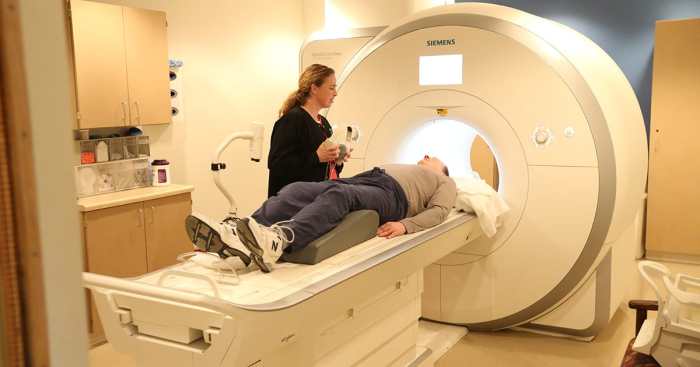
MRI scans can be expensive, and the cost can vary depending on several factors, including the type of MRI scan, the facility where it is performed, and your insurance coverage. In this section, we will discuss cost-sharing and financial considerations related to MRI scans and provide tips for minimizing out-of-pocket expenses.
Understanding Cost-Sharing
Cost-sharing refers to the portion of the cost of medical services that is paid by the patient. There are three main types of cost-sharing: deductibles, coinsurance, and copays.
- Deductible: A deductible is the amount you must pay out-of-pocket before your insurance starts to cover the costs of medical services. Deductibles can vary widely from plan to plan, so it is important to check your policy to see what your deductible is.
- Coinsurance: Coinsurance is a percentage of the cost of medical services that you pay after you have met your deductible. Coinsurance rates can also vary from plan to plan, but they are typically between 10% and 30%.
- Copay: A copay is a fixed amount that you pay for a specific medical service, such as an MRI scan. Copays are typically lower than deductibles and coinsurance, but they can still add up if you have multiple medical expenses.
Tips for Minimizing Out-of-Pocket Expenses
There are several things you can do to minimize your out-of-pocket expenses for MRI scans:
- Shop around for the best price. The cost of MRI scans can vary significantly from one facility to another. Before you schedule your MRI scan, call around to different facilities and compare prices. You can also use online tools to compare prices for MRI scans in your area.
- Ask about discounts. Many facilities offer discounts for MRI scans if you pay in cash or if you have a high-deductible health plan. Be sure to ask about discounts before you schedule your MRI scan.
- Use a flexible spending account (FSA) or health savings account (HSA). FSAs and HSAs are tax-advantaged accounts that allow you to set aside money to pay for medical expenses. If you have an FSA or HSA, you can use the money in your account to pay for your MRI scan. This can help you save money on your out-of-pocket expenses.
Alternative Imaging Options

MRI scans are a valuable diagnostic tool, but they’re not always the most appropriate or cost-effective imaging modality. In some cases, other imaging techniques may be better suited for a particular medical condition.
Imaging Modalities Comparison
- X-rays: X-rays use a small amount of radiation to create images of bones and dense tissues. They’re commonly used for diagnosing fractures, pneumonia, and dental problems. X-rays are quick, inexpensive, and widely available.
- CT scans: CT scans (computed tomography scans) use X-rays and computer processing to create detailed cross-sectional images of the body. They’re used to diagnose a wide range of medical conditions, including cancer, heart disease, and stroke. CT scans are more expensive than X-rays but provide more detailed images.
- Ultrasound: Ultrasound uses sound waves to create images of the body’s soft tissues. It’s commonly used to diagnose problems with the heart, liver, kidneys, and reproductive organs. Ultrasound is non-invasive and doesn’t involve radiation.
Choosing the Right Imaging Option
The best imaging modality for a particular medical condition depends on several factors, including:
- The type of medical condition being evaluated.
- The specific information needed to make a diagnosis.
- The patient’s age, overall health, and medical history.
- The availability and cost of the imaging modality.
In some cases, a doctor may order more than one imaging test to get a complete picture of a patient’s condition.
Patient Advocacy and Support
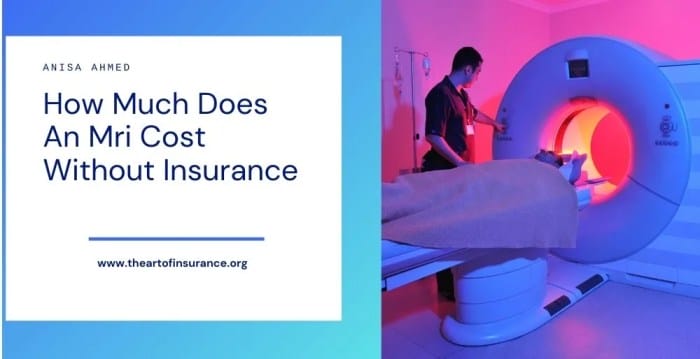
Navigating the insurance approval process for an MRI can be challenging, and patients may benefit from the assistance of patient advocates or support groups. These resources can provide guidance, support, and assistance in understanding insurance policies, completing necessary paperwork, and communicating with insurance providers.
Finding Patient Advocates or Support Groups
There are various ways to find patient advocates or support groups that can assist with insurance approval for an MRI:
- Online Resources: Websites such as the National Patient Advocate Foundation, the Patient Advocate Foundation, and the National Organization of Rare Disorders provide information on patient advocacy services and support groups.
- Healthcare Providers: Doctors, nurses, and other healthcare providers may have knowledge of local patient advocacy organizations or support groups.
- Local Hospitals and Clinics: Many hospitals and clinics have patient advocate offices or support groups that can provide assistance.
- Non-Profit Organizations: Non-profit organizations dedicated to specific diseases or conditions often offer patient advocacy services and support groups.
Importance of Self-Advocacy and Active Participation
In addition to seeking support from patient advocates or support groups, patients can also play an active role in the insurance approval process by:
- Educating Themselves: Understanding insurance policies, prior authorization requirements, and medical necessity criteria can help patients effectively communicate with insurance providers.
- Maintaining Detailed Records: Keeping a record of all communication with insurance providers, including dates, times, and names of individuals spoken to, can be helpful in case of any disputes.
- Appealing Denied Claims: If an insurance claim is denied, patients have the right to appeal the decision. Following the insurance provider’s appeals process and providing additional documentation or information can sometimes lead to a successful appeal.
Legal Considerations
Understanding your legal rights as a patient is crucial when seeking insurance coverage for MRI scans. Navigating the healthcare system can be complex, and knowing your options and protections can empower you to advocate for the care you need.
The process of filing an appeal or grievance with your insurance company varies depending on the specific provider and policy. Generally, it involves submitting a written request for reconsideration of a denied claim, providing additional medical information or documentation, and potentially engaging in a peer-to-peer review with a medical professional.
State and Federal Laws Protecting Patients’ Rights
Numerous state and federal laws safeguard patients’ rights to necessary medical care, including access to diagnostic imaging procedures like MRI scans. These laws vary across jurisdictions, but commonly address issues such as:
- Patient Protection and Affordable Care Act (ACA): The ACA prohibits insurance companies from denying coverage for essential health benefits, including certain preventive and diagnostic services.
- Mental Health Parity and Addiction Equity Act (MHPAEA): This law ensures that insurance coverage for mental health and substance use disorders is comparable to coverage for physical health conditions.
- State Mandated Benefits: Many states have laws that require insurance plans to cover specific medical services, including MRI scans for certain conditions.
Closing Summary
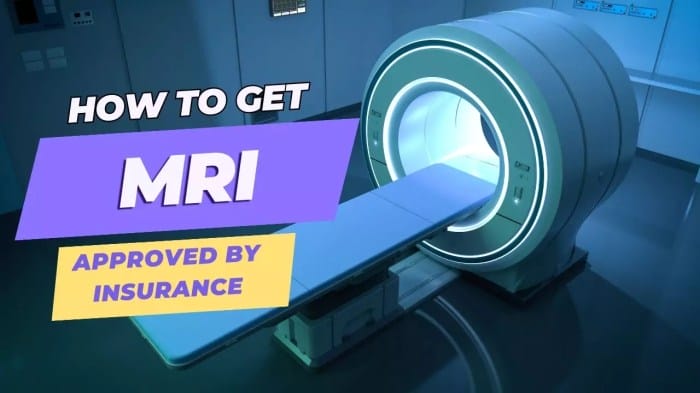
Navigating the insurance approval process for MRI scans requires a combination of understanding, persistence, and effective communication. By comprehending insurance coverage basics, fulfilling prior authorization requirements, and presenting a compelling case for medical necessity, individuals can increase their chances of approval.
Additionally, clear and concise documentation, proactive communication with insurance providers, and exploring cost-sharing options can further streamline the process. Remember, advocating for your healthcare needs is essential, and various resources and support groups are available to assist you in this journey.
FAQ
What are common examples of MRI procedures covered by insurance?
Insurance coverage for MRI scans varies depending on the specific plan and medical condition. Common MRI procedures typically covered include brain scans, spine scans, abdominal scans, and joint scans.
How can I obtain prior authorization for an MRI scan from my insurance provider?
To obtain prior authorization, contact your insurance provider and inquire about their specific requirements. Typically, you’ll need to submit a prior authorization request form, along with relevant medical records and supporting documentation.
What documentation is required for MRI approval by insurance?
Essential documentation for MRI approval includes a completed prior authorization request form, a referral from your doctor, relevant medical records, and any additional information requested by your insurance provider.
How can I minimize out-of-pocket expenses for MRI scans?
To minimize out-of-pocket expenses, consider using in-network providers, utilizing flexible spending accounts (FSAs) or health savings accounts (HSAs), and exploring financial assistance programs offered by healthcare providers or insurance companies.
What are alternative imaging options to MRI scans?
Alternative imaging modalities include X-rays, CT scans, and ultrasounds. Each modality has its advantages and disadvantages, and the choice depends on the specific medical condition and the information needed for diagnosis.



